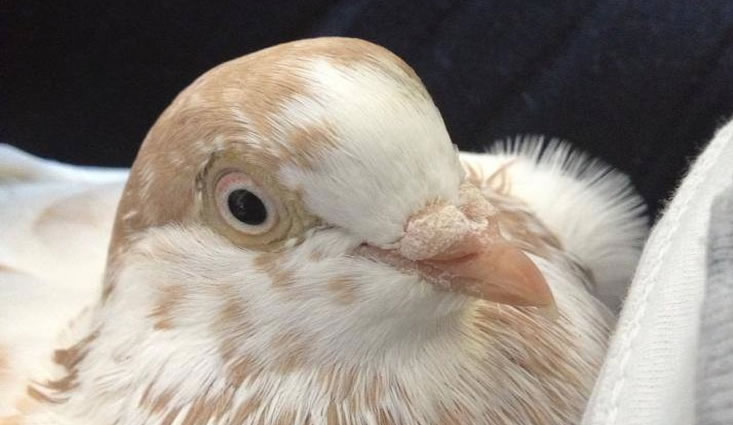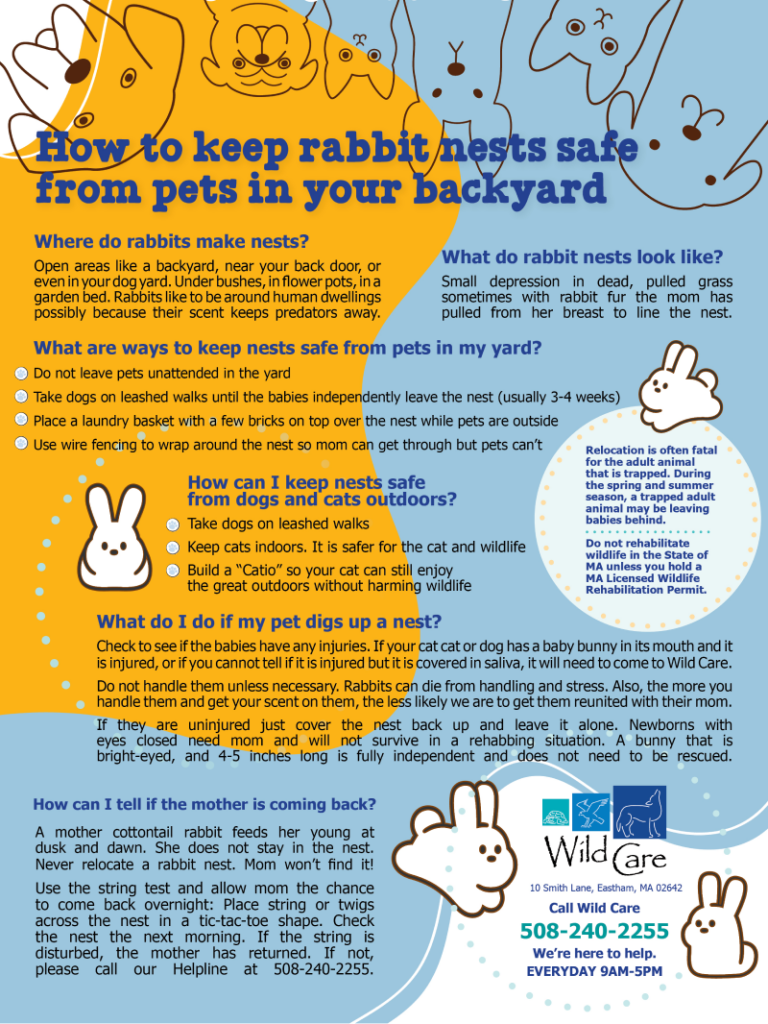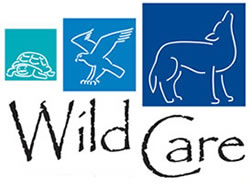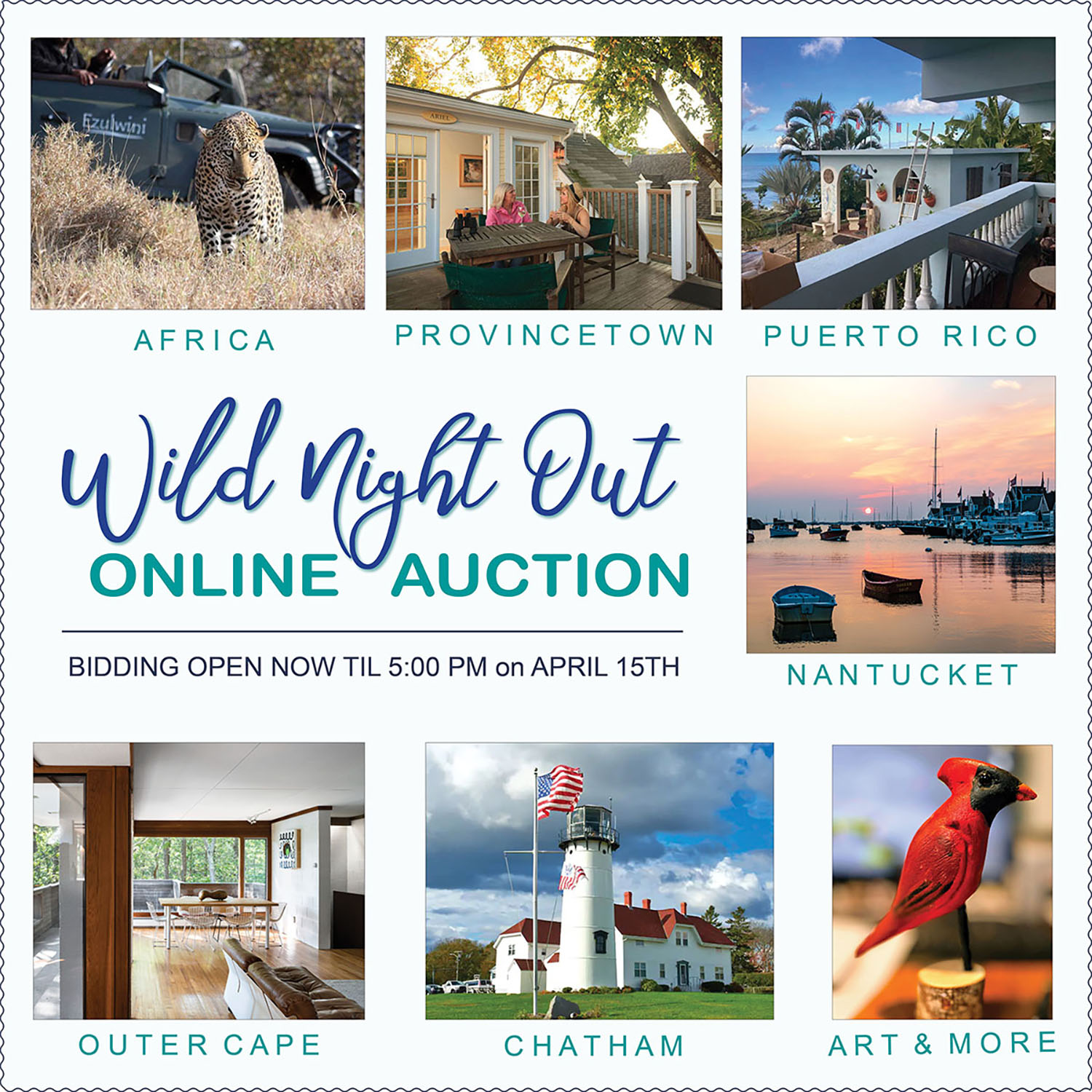
Preventing Wildlife Conflicts
Living with our Wild Neighbors: View this printable info sheet
“My Neighbors Are Wild – Resources” which provides resources for the following:
- Where to purchase wild bird-related supplies on Cape Cod.
- Wildlife Rehabilitators and wildlife emergency resources near you.
- Planting a native garden to attract wildlife.
- Reducing avian window strikes.
- Keeping cats indoors. It’s safer for your cat, and safer for wildlife.
- Alternatives to poison: Humane rat and mouse deterrents and control
- Attracting birds to your backyard with nest boxes.
- Humane Wildlife Management Services on Cape Cod
***
Keeping Rabbit Nests Safe

Tips for Preventing Human-Wildlife Conflict:
There are some local wildlife that Wild Care does not accept for a variety of health and regulatory reasons, such as bats or larger mammals like raccoons, foxes, coyotes and deer. Your first option is to call your local Animal Control Department for assistance, or call us for a referral.
We are happy to suggest ways to deal with unwanted animal guests in your home or yard and to assist the public in avoiding unpleasant wild encounters. Here’s some advice on how to safely and humanely encourage them to move elsewhere.
First and foremost – never approach wild animals.
Foxes, raccoons and coyotes can be dangerous to humans. If you have been scratched or bitten by a wild animal, please call your local Animal Control.
• Don’t leave cat or dog food outside overnight.
• Don’t leave birdseed in feeders or on the ground overnight.
• Don’t put unsecured garbage outside at night.
• If you have a pet door, close it securely at night.
• Trim overhanging branches that provide easy access to your roof for wildlife.
• Cover crawl spaces and attic openings with heavy gauge, rustproof wire mesh (not chicken wire).
• Carefully inspect your eaves and other areas where the roof and house join. Repair deteriorating boards, warped siding and loose shingles.
• If you have a chimney, make sure that it has a secure cap. Chimneys without caps are open invitations to raccoons looking for “hollow trees” in which to give birth and raise their young.
• If you have a deck, you can prevent animals from digging underneath it by creating an L-shaped barrier. Attach heavy gauge wire mesh to the base of the deck, sink it six inches into the ground, bend it 90 degrees away from the deck for 12 inches and then cover it with soil.
You can gently urge wild animals to relocate away from your home or business by placing visual, auditory and olfactory distractions in the area they have inhabited. Pinwheels, vinegar, wind chimes and radios playing can disturb the animal and cause them to seek a quieter nesting place.
If you still feel you need to have an animal removed, we recommend Perry Le Pews Wildlife Management Co. because they use ultra-humane removal & rescue practices:
750 Wakeby Rd, Marstons Mills, MA 02648
(508) 477-4316
For additional information you can also visit the Humane Society of America’s website.
Deterring Rats and Mice – Humanely
Preferred Pest Control Products by Raptors are the Solution
Natural Rat Repellents by HomeTipsWorld
Wild Night Out Online Auction
READY, SET, BID… We are so excited to announce that our Wild Night Out Online Auction is now live!
READ ALL NEWS
CALENDAR OF EVENTS
04 April, 2024
Wild Night Out Online Auction
EVENT DETAILS
05 April, 2024
Wild Night Out
EVENT DETAILS
28 February, 2024
Wildlife Winter/Spring Talk Series
EVENT DETAILS

DID YOU KNOW??
Wild Care has a state-of-the-art seabird therapy pool, which allows seabirds and waterfowl to exercise on running water. This will help our bird friends recover more quickly so they can get back to their watery habitats!

